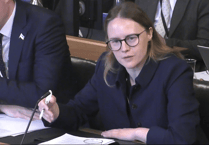There have been fewer greater time sinks for me this past year in Parliament than Cornish devolution. But, there have been some strong contenders:
Working to secure much needed funding for economic growth, for schools, GPs and our hospital amidst a financial wreckage left by the previous government; dealing with the early uproar about winter fuel payments; working to get much needed support to constituents most in need; setting up and then moving into St Austell town my local office; and, no doubt, a summer of hard work ahead in the constituency to try and begin to turn around the fortunes of our town.
But, in the 12 days since the English Devolution and Community Empowerment Bill was released, devolution has, once again, seen me burning the midnight oil over long, dry documents - but with a belief that the key to unlocking Cornwall's potential lies in getting on top of the fine print.
Given the often high drama of the devolution debate this past year, ranging from my own video flipping upright scones spread with jam and cream the wrong way round, to neighbouring MPs invoking the fire and fury of Trelawny, the climax in this latest but, doubtless, not final chapter in the history of Cornish devolution has been something of a gentle, reassuring cadence, rather than a rapturous crescendo.
There is still much to be done - and I've been clear with my Government in Westminster that I'm not ready to sign off on devolution in England whilst Cornwall is denied its fair share.
But I am relieved to see that, far from being the bulldozer that many feared, the Bill we've been presented with does very little to block Cornwall, as it formalises its "single foundation" status, from access to meaningful strategic powers and investment.
I well understand the initial outcry of Liberal Democrat colleague Andrew George MP, who labelled it an "English Centralisation Bill" but precisely because it is not primarily about the creation of new powers for Mayors but about, in many cases, their transfer from Local Authorities. I can understand why leaders of so many unitary authorities smaller than Cornwall (and most are) have been up in arms across England about losing strategic control. But, fortunately, with its "single foundation" protected, national minority status now acutely recognised in Westminster, our consensus around our geographical footprint (which is large enough to continue to administer strategic powers), and a robust campaign against geographical consolidation this past year - Cornwall will not suffer this fate.
Now this is not to say that Mayors do not gain, in some instances, attractive powers and may, in certain geographies, be best placed to administer them. But, looking at the substance of the Bill as I have in detail these past 12 days, I’ve developed a distinct lack of envy for what's on offer - reflecting the calm and collected recognition by central Government this past year, that arbitrarily favouring one system of devolved Government over another is a losing battle and that, in practice, the imposition of regional Mayors across disparate geographies, far from being a panacean means of devolving control is, in fact, is not as disruptive as many anticipated. But, once again, this is not a fate imposed on us by the Bill.
I'll be the first admit, I didn't come into politics to do nationalism - even Cornish nationalism - but when your home is under threat from a loss of sovereignty and strategic decision-making, instinct takes over.
Let us just hope that my instinct was a good one - that close reading of the letter of the would-be law was time well spent - and that the Bill does exactly what it says on the tin: very little to hinder Cornwall, leaving us the space to continue our fight for the investment and powers we want now that our footprint is protected.




.jpeg?width=209&height=140&crop=209:145,smart&quality=75)
Comments
This article has no comments yet. Be the first to leave a comment.